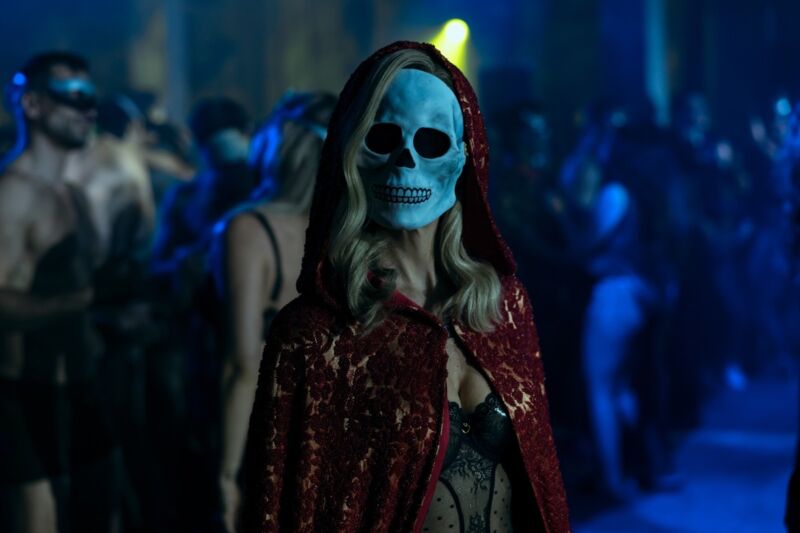
Netflix
Halloween approacheth yet again, and that means it’s time for another classic horror miniseries from Mike Flanagan and Netflix, the partnership that brought us The Haunting of Hill House, The Haunting of Bly Manor, and Midnight Mass. For his final (sob!) project with Netflix, Flanagan has gifted us with The Fall of the House of Usher. To say it’s an adaption of the famous short story by Edgar Allan Poe wouldn’t be doing the miniseries justice. What Flanagan has done is something quite extraordinary: it’s more an inventive remix of the best of Poe’s oeuvre, creating something that’s entirely Flanagan’s own while still channeling the very essence of Poe.
(Some spoilers below, but no major reveals.)
In Poe’s original short story, an unnamed narrator visits his old friend Roderick Usher, who has fallen ill along with his twin sister Madeline—the last surviving members of a once prominent family. The nature of their illness is never disclosed, but Roderick appears to be going mad, convinced his fate is tied to the Usher house—and there is an ominous crack starting from the roof running down the front of the house. Roderick accidentally entombs Madeline alive, believing she has died, and one dark stormy night, she re-emerges and attacks him in revenge. As the twins expire and the narrator flees in terror, the entire house splits in two and sinks into a nearby lake. It’s pure Gothic horror, a genre that inspired Poe’s many short stories and poetry in the early 19th century.
In Flanagan’s version, Roderick Usher (Bruce Greenwood) and his twin sister Madeline (Mary McDonnell) are the CEO and COO, respectively, of Fortunato Pharmaceuticals, a vast corporate empire that the pair ruthlessly built up over 40 years. The keystone of their business is a wildly popular pain-killing drug called Ligadone, which they claim is safe and non-addictive despite many, many deaths over the years resulting from abuse of the drug.
A police investigator named C. Auguste Dupin (Carl Lumbly) has spent decades trying to nail the siblings on the company’s various shady business practices and has finally managed to bring the Ushers to trial. The family is ably defended by their dour lawyer/fixer, Arthur Gordon Pym (Mark Hamill), aka the “Pym Reaper,” and it looks like they might once again escape any real consequences for their role in the opioid epidemic.
But then Roderick’s six grown children start mysteriously dying. The two eldest are Frederick Usher (Henry Thomas) and Tamerlane Usher (Samantha Sloyan), both born to Roderick by his first wife, Annabel Lee (Katie Parker). Then there are those the womanizing Roderick fathered with four different mothers: Victorine LaFourcade (T’Nia Miller), Napoleon Usher (Rahul Kohli), Camille L’Espanaye (Kate Siegel), and Prospero Usher (Sauriyan Sapkota).
It’s not a spoiler to say that all of them are doomed; we learn that much in the first five minutes. The suspense comes from watching them march inevitably toward their respective gruesome fates, each manner of death inspired by one of Poe’s short stories. The mystery lies in who, ultimately, is to blame. Are these deaths truly freak accidents, or does it have something to do with dark secrets in Roderick and Madeline’s past—perhaps related to their impoverished childhood in a ramshackle old house; their improbable rise to fortune; and a mysterious woman named Verna (Carla Gugino) they met at a bar one New Year’s Eve in 1979? Those secrets unfold through a series of flashbacks peppered throughout House of Usher‘s eight episodes.